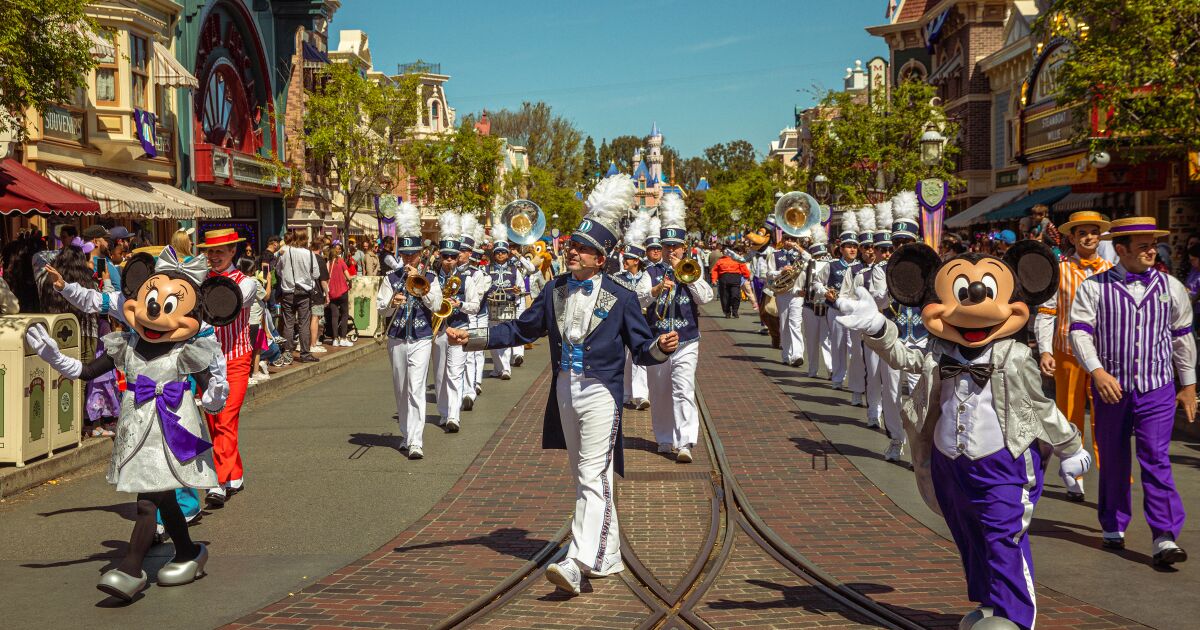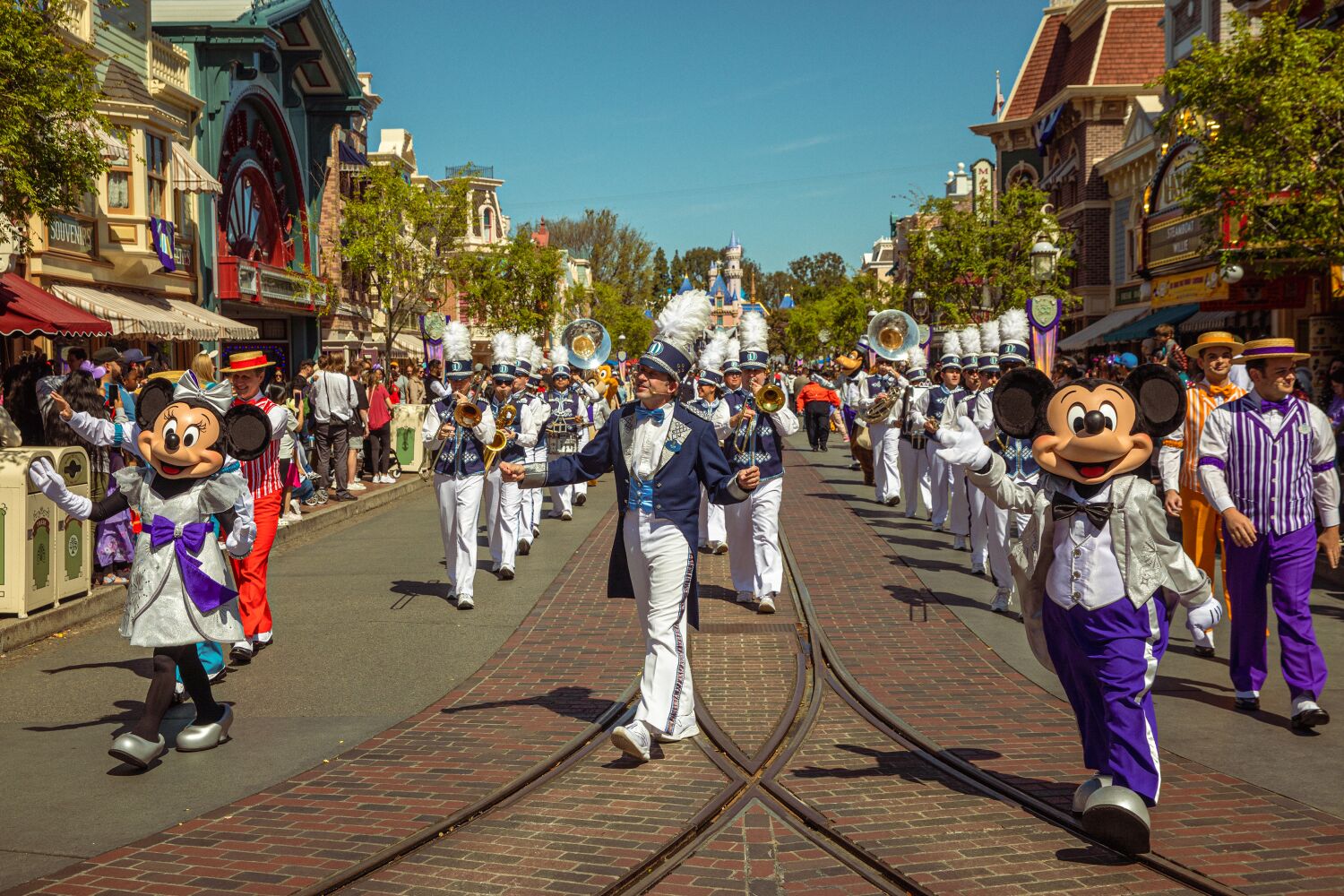
Disneyland workers could get a pay hike to nearly $20 an hour after living-wage win

A California appellate court ruled that Disneyland has illegally evaded a living-wage law passed by Anaheim voters in 2018 that could boost pay for Disneyland Resort workers to nearly $20 an hour.
The ordinance, known as Measure L, applies a minimum wage to Anaheim resort companies that have tax rebate agreements with the city.
In response to a class-action lawsuit representing 25,000 workers, attorneys for the Walt Disney Co. claimed that it received no such city subsidies in Anaheim and that the law therefore didn’t apply.
But a three-judge panel from California’s 4th District Court of Appeal disagreed, citing a provision in a 1996 Disney expansion deal passed by Anaheim in which the city agreed to repay the company if it had to cover bond payments.
“We are pleased the court focused on the economic reality of Disney’s agreements with Anaheim and concluded that Disney is obligated to comply with the living wage law,” said Sarah Grossman-Swenson, an attorney representing the workers. “The court’s decision will have a real impact on thousands of Disney employees who work so hard but struggle to provide for their families.”
Under the minimum wage law, Disney theme park employees could be paid nearly $20 an hour.
A Disney spokesperson wasn’t immediately available for comment.
Anaheim city spokesperson Mike Lyster said: “We respectfully question the interpretation but need to analyze the decision in the days ahead to determine what it means.”
The Anaheim City Council has given generous tax breaks to the largest employer in Orange County in the past.
In 2015, council members approved a policy to reimburse Disney for any future admissions tax for up to 45 years in exchange for a $1-billion expansion of the theme park.
The next year, Disney received a $267-million tax break for a planned luxury hotel.
But in the midst of the heated living-wage campaign, Disney asked the Anaheim City Council to tear up the two agreements.
The move shocked some political observers, who saw it as a calculated way to evade the measure if passed by Anaheim voters.
Without the agreements on the books, the city exempted Disney from the law in 2019 on the grounds that its triggers didn’t apply to the company.
An Orange County Superior Court judge agreed in a summary judgment favoring Disney two years later.
“Whether the city of Anaheim ‘subsidized’ the Disney Defendants in a colloquial sense is not an issue,” Judge William D. Claster wrote in a tentative ruling in 2021.
The appellate court overturned Claster’s ruling, which hinged on the 1996 expansion deal that paved the way for Disney to build California Adventure, Downtown Disney and the Grand Californian Hotel while Anaheim modernized its resort area with $510 million in bonds issued.
Disney has never had to cover any bond payments, even when the COVID-19 pandemic closed Disneyland for 13 months and tourism in the city plummeted.
Disney could appeal the appellate ruling to the California Supreme Court, but attorneys representing its workers hope that the legal fight is over.
“We know from talking to several of the named plaintiffs in the litigation, that they had at least a shortfall of several dollars per hour for some time,” Grossman-Swenson said. “We urge Disney to do the right thing and start complying with the law.”
Stay connected with us on social media platform for instant update click here to join our Twitter, & Facebook
We are now on Telegram. Click here to join our channel (@TechiUpdate) and stay updated with the latest Technology headlines.
For all the latest Education News Click Here
For the latest news and updates, follow us on Google News.

